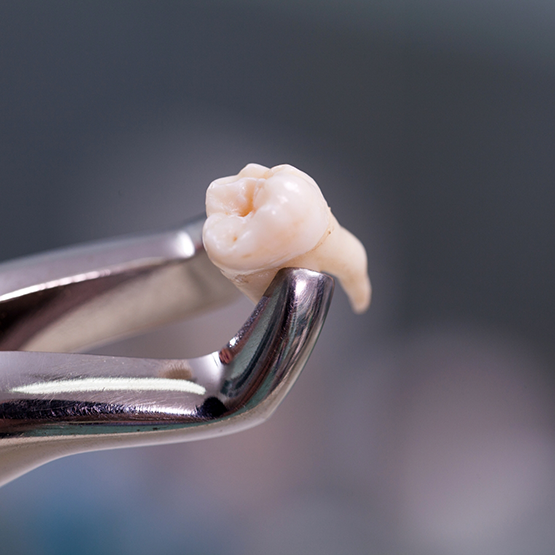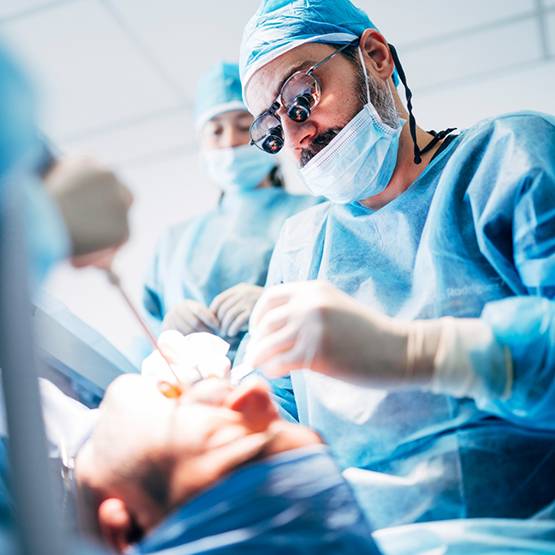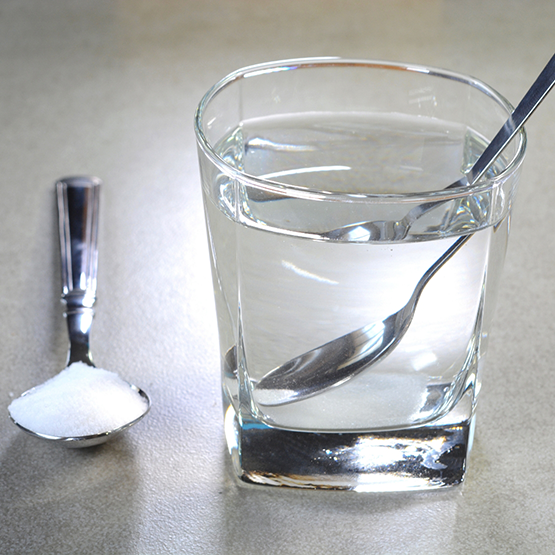Tooth Extractions Granby
We Save Smiles with Gentle Treatment

When it comes to your smile, our dentists generally prefer to save your natural teeth rather than remove them entirely. After all, even dental implants can’t quite do what your natural teeth can. However, sometimes an extraction truly is the only or best treatment option available for preserving your oral health. If our dentists recommend a tooth extraction in Granby, you can rest assured that we will walk you through the entire process and make certain that you’re fully informed and comfortable. Read on or reach out to our office today to learn more about the procedure.
Why Choose Salmon Brook Dental for Tooth Extractions?
- Compassionate Team of Dental Professionals
- Nitrous Oxide Sedation Available
- Children, Teens, & Adults Treated
Reasons Why Tooth Extractions Are Necessary

Tooth extractions can become necessary in several situations. For example, if your child’s primary or “baby” teeth have not come out and they are preventing the permanent teeth from erupting, extraction can remove these little obstacles. The same applies to those who have overcrowded teeth and need space for orthodontic treatment. Severe gum disease, damage, or decay can also put teeth at risk of further harm or infection. Tooth extraction may even be necessary to help prolong the lifespan of restorations, such as a denture. Our team will evaluate your situation and discuss your treatment options to find the best approach for treating your smile.
The Process of Removing a Tooth

Teeth are normally removed by either pulling them out or via surgical extraction. This will depend entirely on the state of the tooth and your oral health. If your teeth have fully emerged from your gumline, we’ll be more likely to pull it out. We’ll typically begin by completely numbing the area of your mouth where we’ll perform the extraction. By using a special clamping tool, we’ll shift your tooth around until it simply pops out from your gums. If this isn’t a viable option or your tooth isn’t completely erupted, then we may have to make a small incision in the gum tissue to allow us more access to remove it.
The best way to determine the ideal approach is by scheduling a consultation with our team. We can evaluate your smile and walk you through your options. We’ll also discuss any necessary tooth replacement solutions, as they will be essential for preventing further tooth loss and future oral health problems.
Tooth Extraction Aftercare

Before leaving our office, we’ll provide you with an efficient and personalized aftercare plan to help you avoid complications and stay comfortable while you recover. While every situation is different, here are several steps to help with your healing process:
- Elevate your head while resting/sleeping.
- Rinse your mouth with salt water 24 hours after your appointment.
- Give yourself plenty of time to rest.
- Take over-the-counter or prescribed pain relievers as instructed.
- Use a cold compress to alleviate discomfort and reduce swelling.
- Avoid hard, sticky, and crunchy foods.
- Refrain from using tobacco products (either entirely or until your mouth is recovered).
Tooth Extraction FAQs
Does getting a tooth extracted hurt?
Tooth extractions are not painful procedures, as you will receive local anesthesia beforehand. This will ensure that you remain pain-free throughout the process. While we work to remove your tooth, you should remain completely at ease and feel no discomfort. However, once the tooth is removed, you will return home to rest, and the anesthesia will slowly begin to wear off. We do suggest that you take an over-the-counter pain reliever before the anesthesia completely dissipates, as this will minimize any discomfort you might feel.
What are my options for replacing a missing tooth?
When it comes to replacing a missing tooth, you will need to talk to your dentist about available options. These often include dental bridges, dentures, or dental implants. Depending on the status of your jawbone, your oral and overall health, and your budget, we will help you decide which option is right for you.
Many patients prefer dental implants because of their permanence and ability to restore the entire root-to-crown structure. They also last decades or even a lifetime with proper care.
Can I smoke after getting a tooth extracted?
For individuals who smoke, it is always advised that you try and quit before undergoing any kind of dental care. The healing process needs to be successful, and nicotine is known to suppress the immune system. When this happens, your body is unable to heal as it should, resulting in an increased risk of infection and other complications.
It is strongly encouraged that you avoid smoking after undergoing tooth removal; however, if you choose to continue, please wait for five days. It is even better if you wait two full weeks.
How should I prepare for my tooth extraction?
Preparing for your upcoming tooth extraction involves talking to your dentist about which foods you should avoid and which ones are safe to eat the day of. You’ll also need to find out if there are any medications you’re currently taking that you will need to stop before the day of your tooth removal. Because you will need to rest the remainder of the day after your tooth is extracted, it is best if you pick up any prescriptions, food, etc. beforehand so that you can return home and begin the recovery process.
